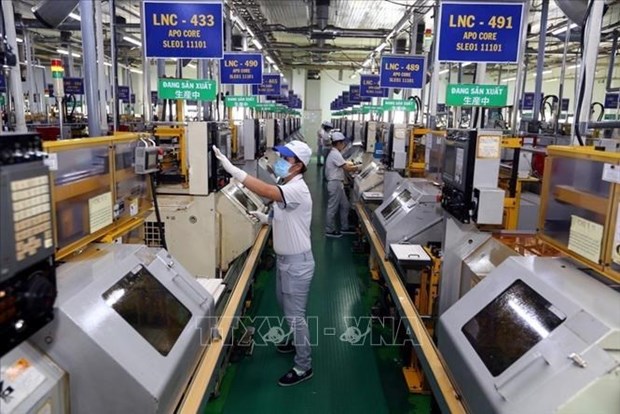Over the last decade, Viet Nam has become a top destination for investment in manufacturing thanks to lower labour costs, simpler supply chain integration, better free trade access, and relative political stability.

Over the last decade, Viet Nam has become a top destination for investment in manufacturing thanks to lower labour costs, simpler supply chain integration, better free trade access, and relative political stability, according to an article published by the news site tradefinanceglobal.com.
The author said low wages are a large reason why so many manufacturers have moved to Viet Nam in the last decade.
In addition, incorporating Vietnamese producers into supply chains is relatively straightforward both upstream and downstream. Unlike the ASEAN-4 nations (Indonesia, Malaysia, Thailand, and the Philippines), Viet Nam shares a border with China, which makes it easier for manufacturing firms in Viet Nam to integrate into China’s vast network.
The article added that in the downstream side, incorporating Viet Nam into the supply chain is also a relatively unencumbered process. This is because Viet Nam is home to two international airports, several major ports, reliable power, and easy internet access. The country is also small in geographic size, and most suppliers are located close to an airport or major seaport, making it easy to get the finished goods from the factory floor into the hands of waiting customers.
Viet Nam is party to 15 different free trade agreements that encompass more than 50 countries around the world. For manufacturers, this means that a product produced in Viet Nam can be sold to other markets – including many wealthier western markets – without needing to pay prohibitively expensive tariffs along the way.
The author noted that another reason why investors may lean more towards Viet Nam rather than some of the ASEAN-4 nations is Viet Nam’s relative security and political stability. According to the US Department of State’s 2021 Investment Climate Statements: Viet Nam, the country's political and security environment is largely stable and protests and civil unrest are rare.
In conclusion, Viet Nam has weathered the COVID-induced supply chain disruptions well, and is still regarded as a key and growing manufacturing hub. As the Government continues to strike free trade agreements around the world and invest in domestic transportation and communication infrastructure, Viet Nam’s prominence as a rising manufacturing centre seems poised to continue to grow. — VNS





